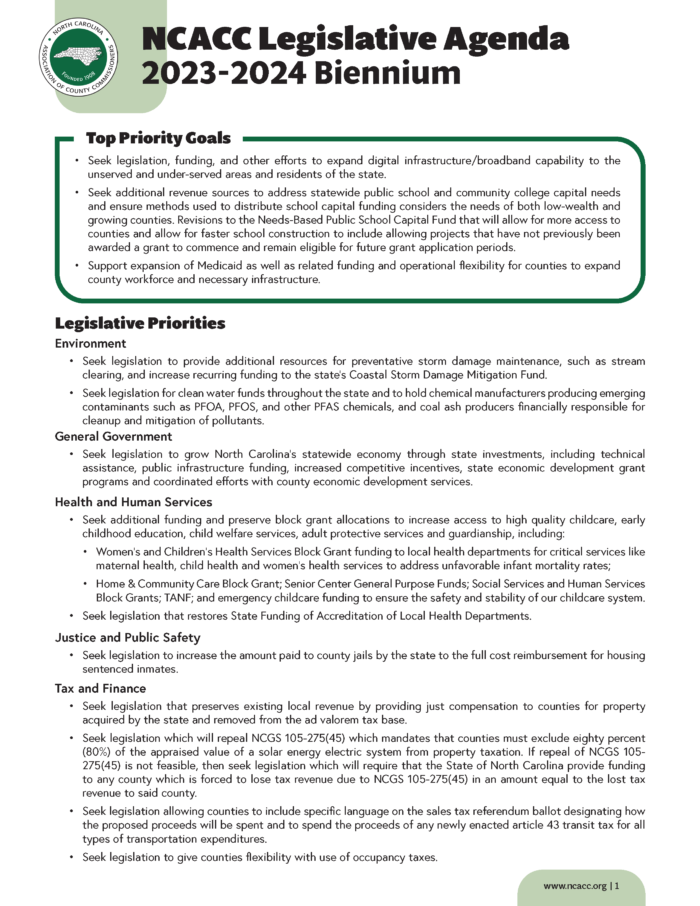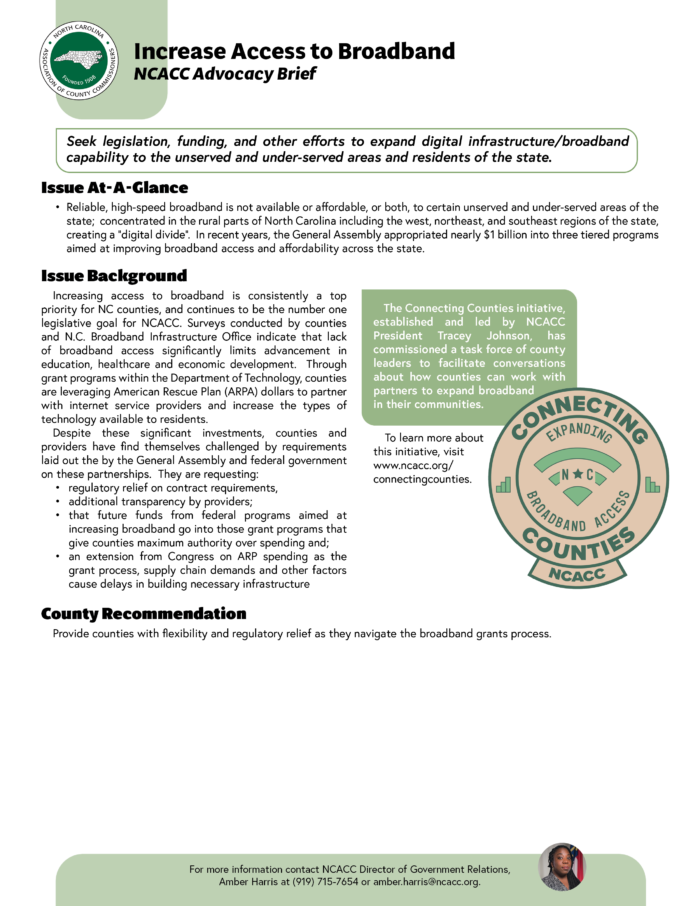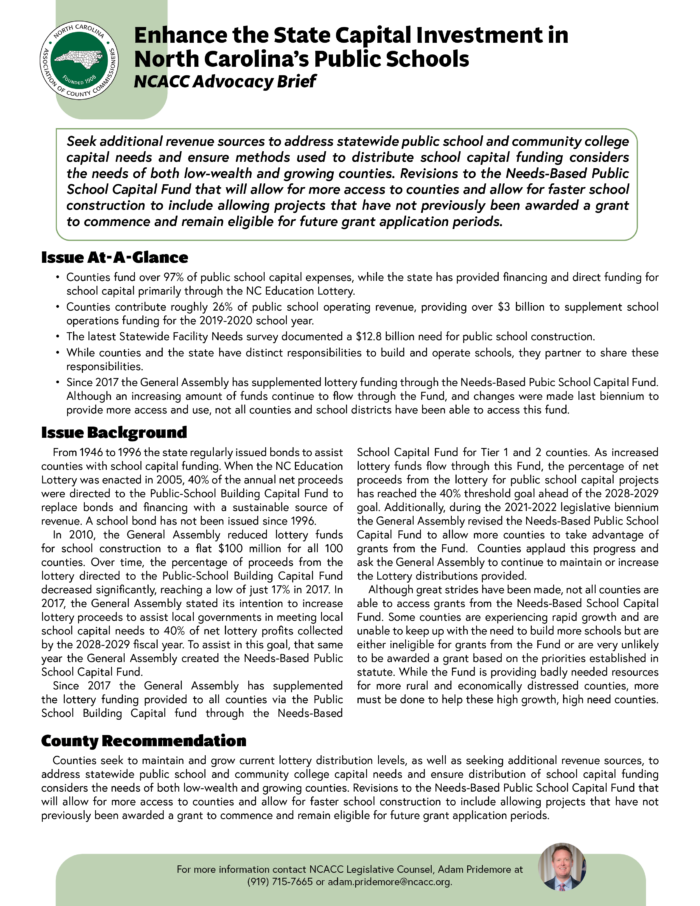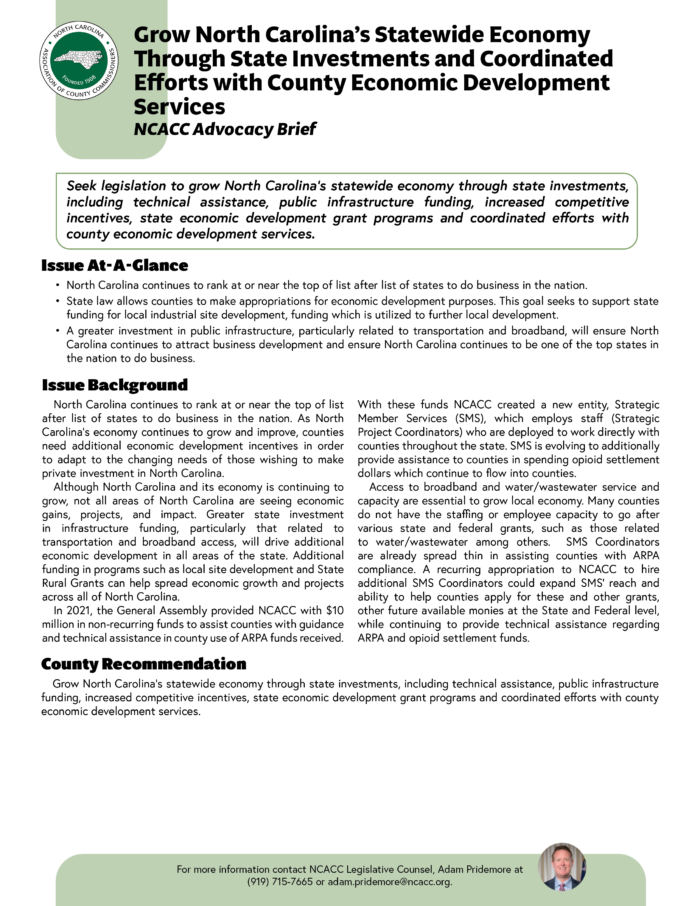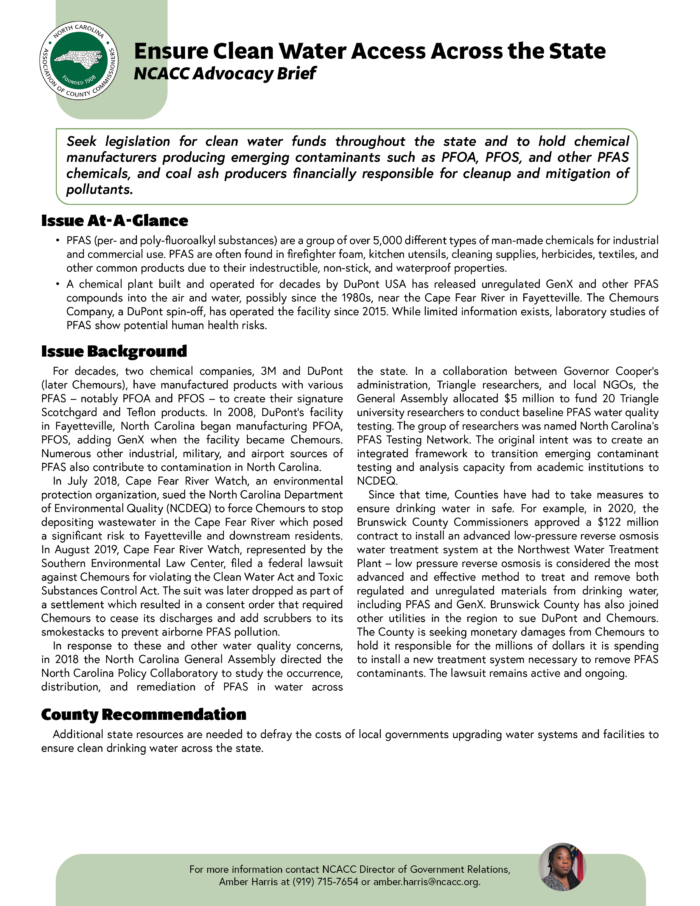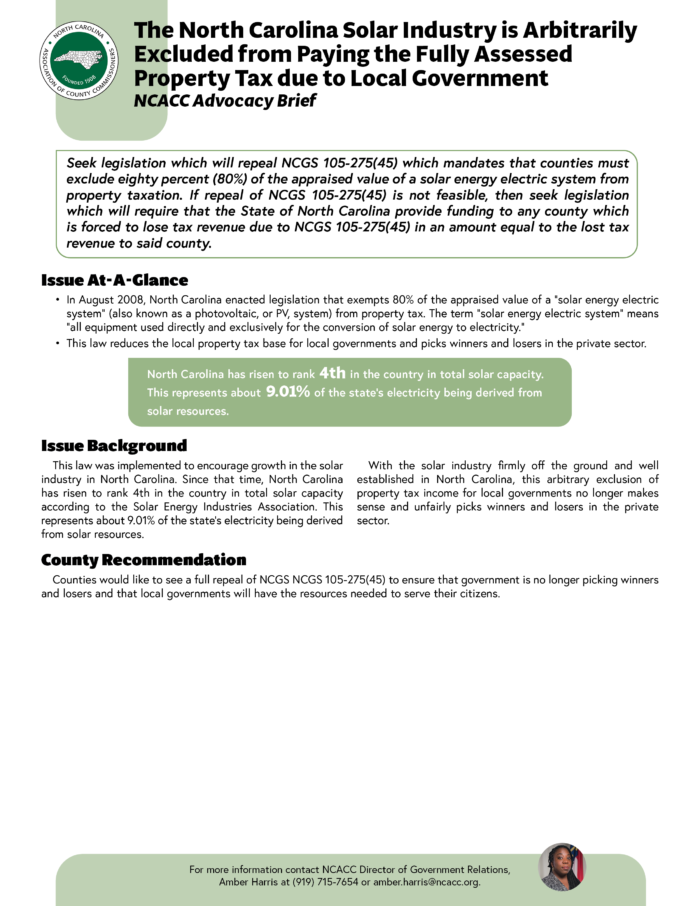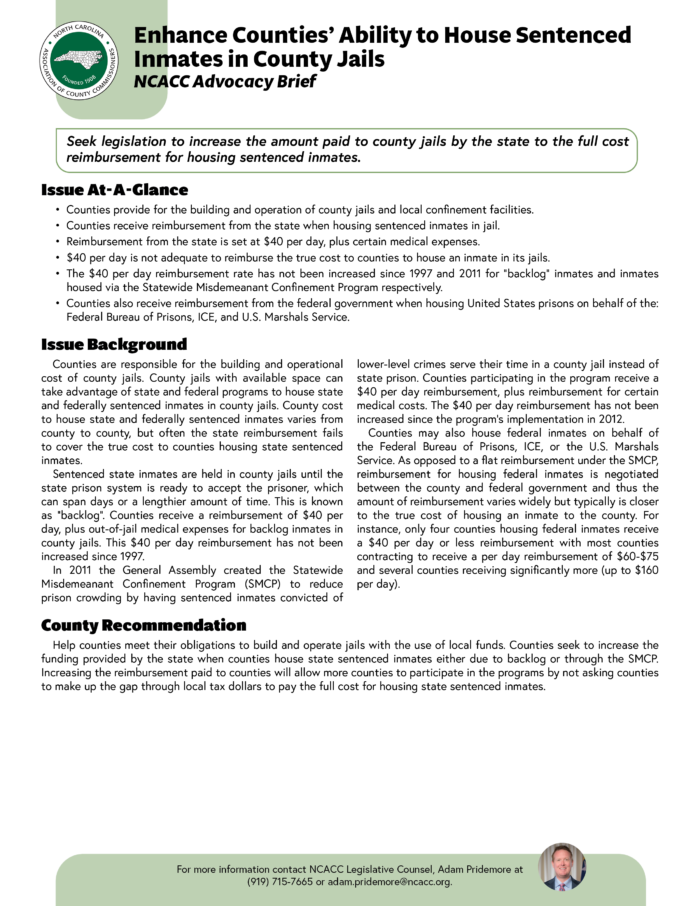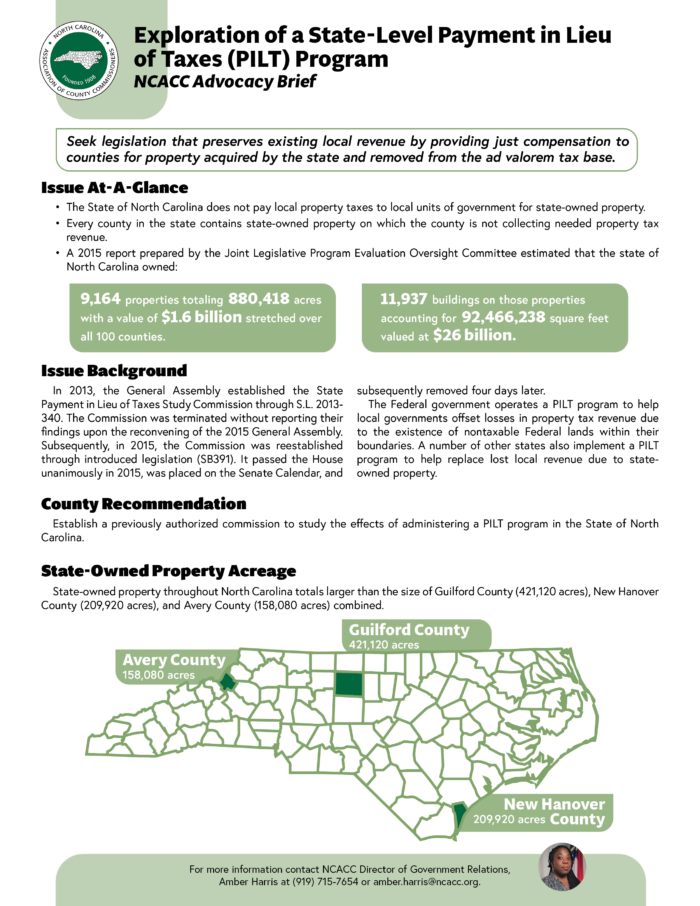Weekly Update Legislative Brief
- June 28, 2024
Notable Activity
The General Assembly temporarily adjourned the 2024 short session this week, but not before considering and approving dozens of pieces of legislation, including override votes of bills vetoed by Governor Cooper and several proposed constitutional amendments. After both chambers released their own 2024 budget plans last week, the Senate kicked off the week by giving final approval to its 2024 budget adjustment, however, the House and Senate ended the week without an agreement on a 2024 spending plan meaning the budget approved last year remains in place, for now. According to the adjournment resolution, consideration of a budget bill may not occur before late November.
The adjournment resolution provides for several dates on which the House and Senate may return over the course of the summer and into the fall but provides limitations as to what the General Assembly may take up during the reconvened session. A weeklong session is contemplated November 19-22 with a wide variety of matters open for consideration, including budget bills. The adjournment resolution lays out the General Assembly will not formally conclude the short session by adjourning “sine die” until mid-December.
As noted above, dozens of bills — many having a county impact — moved quickly this week. Legislation was often presented in committee with new language and provisions not previously in any bill and then passed on the chamber floor just hours later. One such bill among the last to be considered for the session removes the county match requirements for the Completing Access to Broadband (CAB) program. The bill passed the House but did not receive consideration from the Senate before that chamber adjourned. It could still be addressed in a future reconvened session. Please see below for more information on this bill, and other legislation considered this week, including bills making property tax and property tax lien, child welfare/social services, and election law changes.
Legislation to Know
Senate Bill 743 Broadband/Grant Changes – Section 2 of this bill makes the following changes:
- It updates the Completing Access to Broadband (CAB) program to remove county match requirements and requires broadband service providers to provide at least 30% of the total estimated project cost.
- It authorizes the North Carolina Department of Information Technology to use up to $190 million of funds it previously received for CAB to provide the county project cost responsibility for the 37 counties that have committed to participate in CAB as of May 1, 2024.
The House approved the bill this week, and it now heads to the Senate for further consideration.
Senate Bill 743 Broadband/Grant Changes – Section 2 of this bill makes the following changes:
- It requires tax collectors to advertise a tax lien by posting a notice of the lien in a conspicuous manner on the property/parcel to be advertised. This would be required in addition to the requirement to advertise tax liens via the newspaper. (Section 22)
- It creates a framework for local governments to plan for and regulate advanced air mobility radar for traffic control of unmanned aircraft systems, or drones. (Section 23)
- It restores language inadvertently deleted last year prohibiting counties from requiring the forced connection to county sewer in certain circumstances. (Section 26)
- It prohibits public water and sewer systems from imposing unauthorized conditions and implementing certain preference systems for allocating services to residential development. The language in this bill is identical to the language found in House Bill 385. (Section 12)
- It requires monetary compensation to owners of on-premises advertisements for the replacement or upgrade of nonconforming signs due to a change in local government regulations. (Section 23.1)
- It directs each county agency to establish a policy to send any permits issued by the agency to permittees via United States mail or electronic mail instead of requiring the permittee to receive in-person delivery of the permit at a physical location. A permittee may opt to receive a permit from a county agency in person at their sole discretion. (Section 22.1)
- It clarifies recently enacted prohibition on counties and cities enacting certain ordinances, rules, and regulations related to battery-charged security fences. (Section 22.5)
The House and Senate approved the bill this week, and it now heads to the governor for further consideration.
Senate Bill 640 Amend Occupational Licensing Board Statutes – Sections 6 and 7 of this bill make the following changes to the Machinery Act:
- It excludes malfunctioning or nonfunctioning business equipment with no greater value than scrap from personal property taxation.
- It extends the period for listing property for taxation from January 31 to April 15 and repeals the general extension provisions.
- It allows for extensions if the county has provided for electronic listing of personal property but limits the extension time to no later than June 1.
The House approved the bill this week, and it now heads to the Senate for further consideration.
Senate Bill 88 Various Elections Changes – This bill makes various election law changes:
- It provides that if the General Assembly enacts a local law altering a local government’s form of government, the local government may only alter that form of government if the alteration is effective subsequent to the federal census following the General Assembly enactment
- It requires the county board of elections to review death and felony conviction records and challenge the ballot of any voter casting a ballot who was not eligible to vote on the day of election due to death or felony conviction
- It requires county board of elections to use signature verification software to check the signatures of voters on an executed absentee ballot before the absentee ballot is accepted by the county board
The Senate approved the bill this week, and it now heads to the House for further consideration.
Senate Bill 425 HHS Omnibus– Among other things, this bill includes the following:
- It directs Trilium Health Resources to submit an alternative board structure to the secretary of the Department of Health and Human Services. Allows the secretary to approve the new alternative board structure and appoint the initial board members without each county in the catchment area adopting a resolution approving the board structure or appointing the board members. (Section 16)
- It amends the qualifications necessary to be appointed a local health director to include the option of a bachelor’s degree in a field related to public health, with at least seven years of experience in health programs that includes three years of supervisory experience. (Section 3)
- It extends the temporary authority of the federally facilitated marketplace to make North Carolina Medicaid eligibility determinations until June 30, 2025. This is intended to decrease the Medicaid enrollment burden on county departments of social services. (Section 9)
The House and Senate approved a negotiated final version of the bill this week which for the first time included the Trilium changes outlined above. The bill now heads to the governor for further consideration.
Senate Bill 166 2024 Bldg. Code Regulatory Reform – The bill amends various development regulations, the North Carolina Building Code, and various environmental and environmental health regulations. Highlights of the bill:
- It requires all local health departments to contract with the North Carolina Department of Health and Human Services (NCDHHS) for the provision of environmental health services and directs the agreement to include quality assurance requirements. Additionally, the bill requires any registered environmental health specialist, registered environmental health specialist intern, or registered environmental health associate contracted to work for a local health department without a contract with NCDHHS is not entitled to the defense or liability protections currently provided by the attorney general as prescribed by statute, nor would they be entitled to defense or liability protections for enforcing a local on
–site wastewater rule, regardless of contract status. In the event of a judgment against, or settlement on behalf of, a registered environmental health specialist, registered environmental health specialist intern, or registered environmental health associate, this bill requires that NCDHHS and the local health department would each be required to pay half of the judgement or settlement, unless NCDHHS in its sole discretion agrees otherwise. - It prohibits unrestricted right of entry as a condition to development approvals.
- Clarifies that landscaping around dwellings or within common areas, or street
- It summarizes residential plan review fees reimbursement when local governments fail to perform reviews within certain timeframes. If a local government fails to conduct the initial residential building plan review within 20 business days after submission, requires local governments to refund 10% of building application fees for each business day it fails to conduct the review for up to 10 business days.
- It clarifies that local governments reviewing designs for which a seal is required may not make administrative decisions based on the appropriateness of the scope of work covered by seals of designs. Local governments can continue to review those plans, drawings, specifications, reports, or other work that requires a seal for all other state and local compliance issues.
- It makes various changes to onsite wastewater statutes, including allowing private compliance inspectors to inspect on
–site wastewater systems.
The House and Senate approved a negotiated final version of the bill this week, and it now heads to the governor for further consideration.
Senate Bill 625 Child Welfare, Soc. Serv., and DHHS Reforms – Among other things, the bill includes the following:
- It requires that the county board of social services members, regional board of social services members, and consolidated health and human services boards have education and training related to the position during their first year serving on the board.
- It requires NCDHHS and other stakeholders to collaborate in the creation of an educational and training program for the board members which must include a segment on potential liabilities of the board. All current board members must complete the education and training by March 1, 2027.
- It creates a procedure to address conflicts of interest which may arise when providing social services.
The House Judiciary 2 committee approved the bill this week, and it heads to the House Rules committee for further consideration.
Other Legislation of Interest to Counties
Senate Bill 355 North Carolina Farm Act of 2024 – Among other things, Section 14 of the bill prohibits cities and counties from imposing stormwater fees for property used for bona fide farm purposes as defined by G.S. 160D-903.
The House and Senate approved a negotiated final version of the bill this week, and it now heads to the governor for further consideration.
House Bill 556 Tenancy in Com./E-Notary/SmallClaims Changes – Among other things, prohibits counties from enacting, maintaining, or enforcing any ordinance prohibiting an owner, lessee, sublessee, assignee, managing agent, or other person having the right to lease, sublease, or rent a housing accommodation from refusing to lease or rent the housing accommodation to a person because the person’s lawful source of income to pay rent includes funding from a federal housing assistance program.
The House and Senate approved a negotiated final version of the bill this week, and it now heads to the governor for further consideration.
House Bill 237 Various Criminal and Election Law Changes – Makes the following changes to criminal, emergency, and public health and safety
,statutes impacting counties:- It modifies the existing exemption to the general prohibition of wearing masks in public to make clear a person may wear a medical or surgical grade mask to prevent the spread of contagious diseases.
- It prohibits executive emergency orders and local government emergency prohibitions or restrictions from imposing additional restrictions on religious institutions not imposed on public or private for-profit or non-profit entities.
- It increases the criminal penalty for someone who willfully impedes traffic while participating in a demonstration intended to impede traffic, including even greater penalties when obstructing emergency vehicles. Additionally, under the legislation, a person who organizes a demonstration that impedes traffic would be civilly liable for any injury or death that results from obstructing an emergency vehicle’s use of the road.
The House and Senate held override votes this week, and the bill became law notwithstanding the veto of the governor.
End of Session Report
The North Carolina General Assembly adjourned on October 25, 2023, to convene one day a month until April 24, 2024, capping off the long session of this biennium. The Association has released its final end of session report that outlines the major legislative happenings, the details of the state budget, and major developments with impact to counties during the long session. The full report is available here.
Budget Reports
Overview of 2024-25 House and Senate Budgets and Impact to Counties
This week, the House approved and released a 2024-25 budget, as talks between the House and Senate on a prenegotiated spending plan continue to stall. In response, on Thursday morning the Senate released its own, truncated, budget adjustment bill. That bill is expected to be voted upon early next week in the Senate.
The House’s $31.7 billion spending plan adjusts the 2024-25 budget passed last year by the General Assembly. Priorities in the House budget include additional funding for Opportunity Scholarship grants (funds available for private school tuition), increased teacher and state personnel raises, funding to childcare centers to offset expiring federal grants, and boosts in Medicaid provider rates. NCACC priorities incorporated in the budget include removal of the county match requirements in the Completing Access to Broadband programs, and additional K-12 public school capital funding via the lottery.
The Senate’s $31.4 billion budget adjustment does not provide additional raises for teachers or state employees or increases to lottery allocations to K-12 public school capital funds beyond those in already in place in last year’s budget agreement. The Senate budget also includes additional funding for Opportunity Scholarship grants, funding to childcare centers to offset expiring federal grants, and the removal of the county match requirement in the Completing Access to Broadband (CAB) program.
Senate leadership publicly signaled their intention to adjourn the 2024 short session by June 30. A final negotiated budget could be agreed upon by the House and Senate by then, or shortly thereafter, but it is also possible for negotiations to extend into late summer.
To read the full NCACC 2024-25 House and Senate Budgets report, click here.
2023-2024 Legislative Goals
Every two years, in the months preceding the long session of the North Carolina General Assembly, NCACC begins a grassroots process to develop our Association’s legislative goals, which guide our advocacy efforts at the state and federal levels of government. The process is designed to maximize participation by counties, build consensus among counties, and achieve a unified message on county priorities. View the 2023-2024 Legislative Goals.
The importance of participating in the legislative goals process cannot be overstated. When policymakers hear the same message from all 100 counties throughout our diverse state, the voice of each individual county becomes amplified. Counties are stronger together and our common purpose is enshrined in NCACC history and our vision statement, which states: “Empowering 100 counties to work together for the betterment of one state.”
Advocacy Briefs
Video Library
How to Find Your Legislator
How to Find and Track a Bill
How to Read a Bill
NCACC County Lines Video Series
NCACC Policy Team
*Registered lobbyists
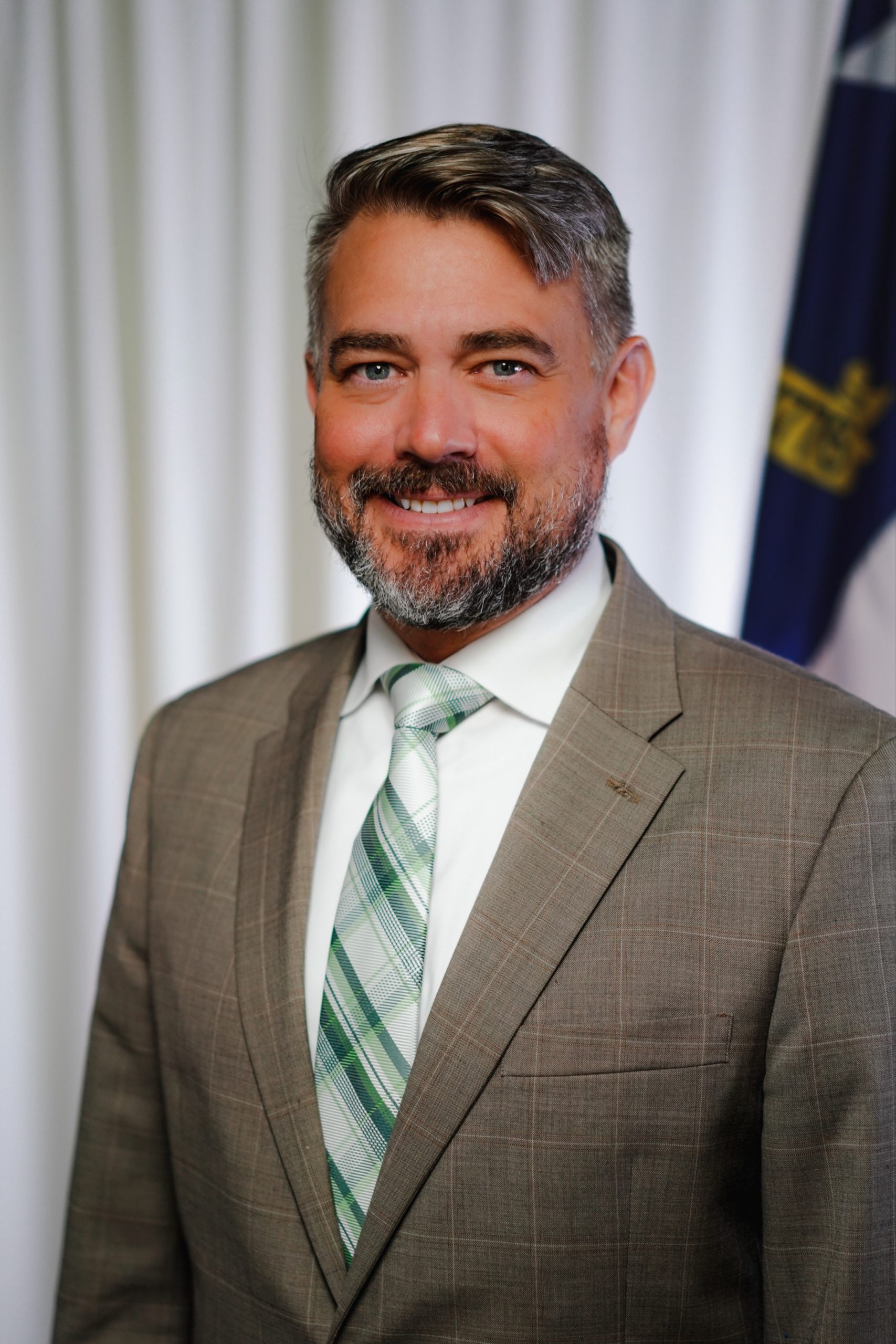
Kevin Leonard*
Executive Director
(919) 715-4369 Email Kevin
Laurel Edwards
Director of Policy Planning
(919) 715-4362 Email Laurel
Amber Harris*
Director of Government Relations
(919) 715-7654 Email Amber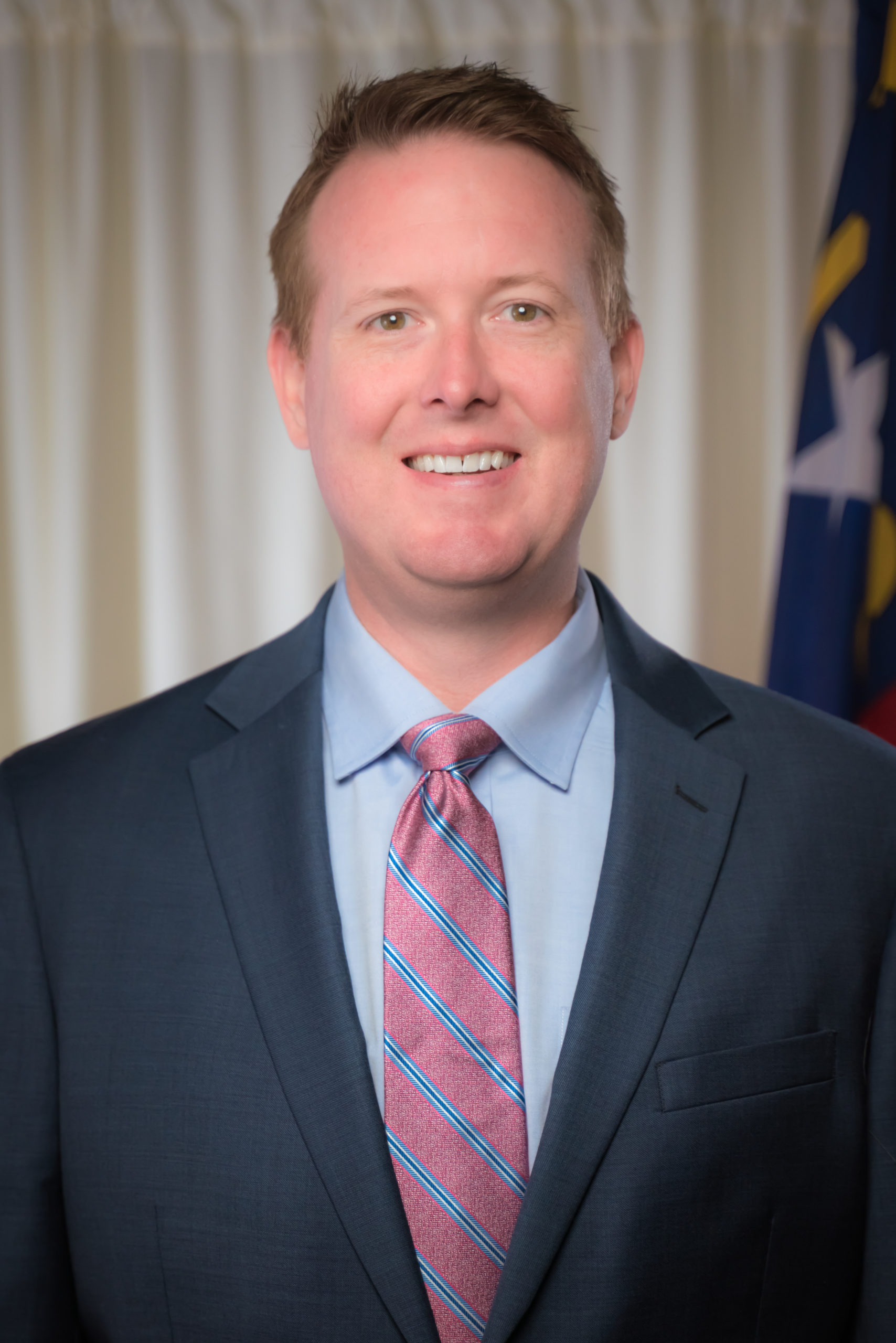
Adam Pridemore*
Legislative Counsel
(919) 715-7665 Email Adam
Denise Canada
Fiscal Policy and Research Director
(919) 715-8044 Email Denise

